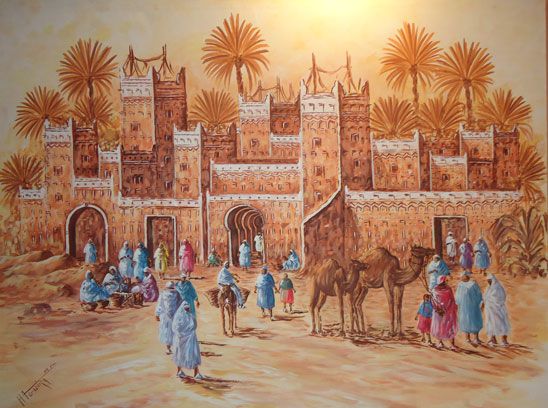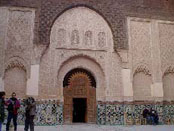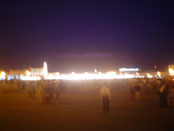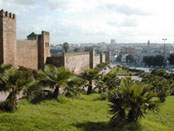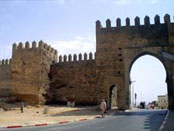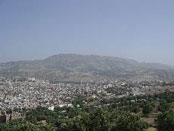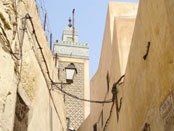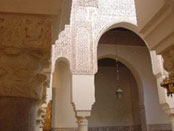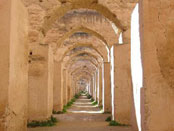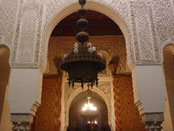|
Fez
Fez is one of the
largest living medieval cities in the world Its narrow alleys and
streets along with medieval looking Islamic Schools, restaurants,
workshops, markets, shops and ancient palaces do make something
special although chaotic to experience. Fez, the capital of the
North was funded a few years after the Arabs came to this region.
Around 800AD, King Idriss II continued his father will of building a
new bigger capital city, so Fez was born and grew from a modest
Berber town to a considerably residential and commercial centre with
the arrival of 8000 Al-Andalusian families that quickly mixed along
some Arab families that came from Qayrawan in Tunisia.
Fez as a lot to offer. You can experience different monuments and
Royal Palaces, narrow streets with local bazaars and shops, you can
visit the city’s ancient leather dye pits and tanneries and get lost
in is Old Medina.
Meknes
Another of the Moroccan Imperial
Cities almost 100km West of Fez. Meknesis the more laid back of the
Imperial cities and reflects its heritage as once the centre of the
Moroccan Sultanate still seen in the several Palaces and castle
walls around the old Medina. The Berber tribe of the Meknassis first
moved to the region around the 10th century but was only around the
17th century that Meknesstart gaining some more respect as an
Imperial city when the Alawite dynasty here established the
country’s capital under the power of Moulay Ismail. In 1755 Lisbon’s
huge earthquake gave Meknesa strong shake and many of its monuments
were for ever lost.
Rabat
This great capital is a very
interesting point to escape all other Imperial cities hassle and
hustle. Rabat combines very well new modern cosmopolitan way of
living with ancient palace and old Medinas inside castle walls
facing the Atlantic coast. Rabat has a lot to offer and you’ll see
plenty starting from the beautiful palaces and Mohammad 5th
Mausoleum, to the Old Kasbah de Oudaias and its Andalusian Gardens.
Rabat has ancient settlements since the Phoenicians and Romans and
only by the 10th and 12th century with the arrival of Almohads
that’s the city started to get some size and more importance. From
here, Yacoub Al-Mansour started his Iberian Peninsula Conquer and a
few years later with its success, Ribat al-Fatah aka Rabat gained
great prosperity. Rabat was Morocco’s capital for several times
until when the French decided to change the government from Fès to
Rabat.
Marrakesh
Marrakesh is the capital of the South.
The wonder of many travelers than even with lots of tourist activity
still remains special and unique. Marrakesh was in history for 2
times the capital of Morocco and actually gave the nowadays western
name of Morocco. Marrakesh was founded in 1062 by Almoravid Sultan
Youssef Ben Tachfinand, and quickly became very prosperous and one
of the most important Islamic cultural and artistic centers as it
was expanded after the conquest of Spain by the Almoravid Sultan.
Marrakesh offers a lot to travelers and Arrahla Expeditions
recommends at least 2 full days in this thrilling town. Its famous
square, Djeemaa Elfna is one of its main attractions and is a
mixture of restaurant stands along with snake charmers, monkeys,
acrobats, fire blowers, loud live music and endless Souq gates.
Indeed a must while in Morocco.

Note:
The order of the
visit changes and depends on your arrival point. If you arrive in
Marrakesh, the circuit will start differently than if you
arrive in Casablanca or in the northern border with Ceuta.
To get answers to
your questions click on
QUESTIONS AND ANSWERS

|

